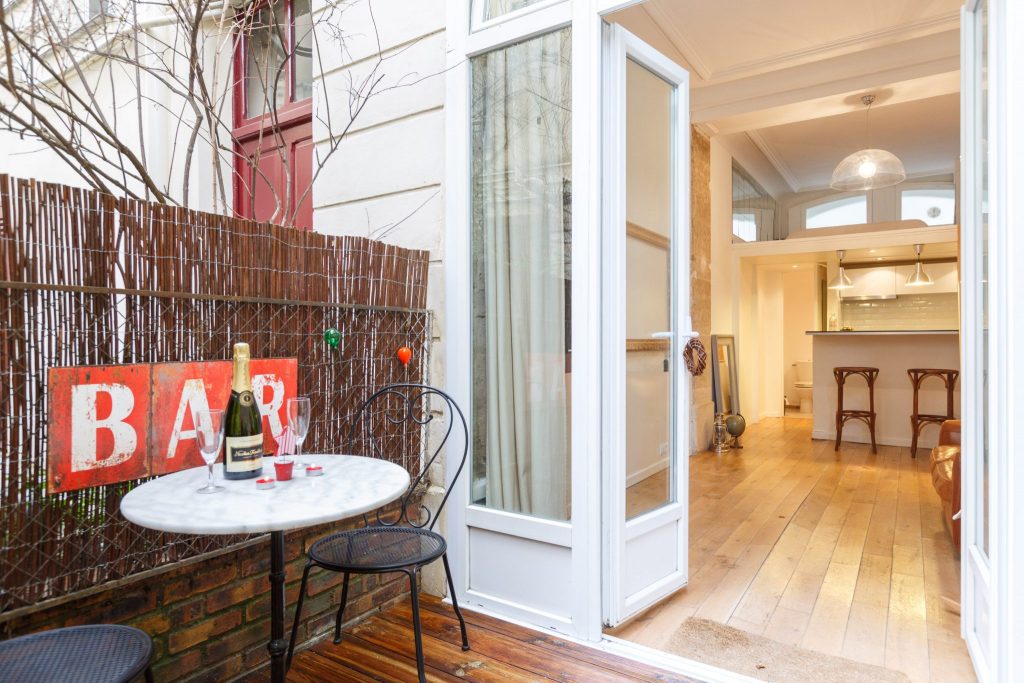Airbnb Offers Greater Price Transparency in Europe After Regulatory Threats

Skift Take
Following pressure from both the Norwegian Consumer Authority and negotiations with the European Commission, which threatened enforcement action, Airbnb revamped the way it displays property prices in the region so consumers see the total price upfront on the first page of listings when they include their desired dates.
Booking.com in Europe already displays the total price, including occupancy taxes in the initial view of a property listing, while Vrbo in the region merely shows the base rate for one night when the listing first appears.
Airbnb's initial price display for a home in Paris now includes the room rate, cleaning fees, service fees, and local occupancy taxes. Booking.com doesn't charge service fees to guests, but its initial listing view shows the total costs, including the total base rate for the room or home, as well as the VAT and city tax in Paris, for example.
In announcing how Airbnb's pricing displays in Europe now comply with European Union law, the EU stated, "There are now no surprise mandatory fees appearing on later pages."
Airbnb agreed to disclose whether a listing is from a private individual or a professional host, to prompt users to insert their desired dates to see the actual total price, and to post an easy-to-find link for conflict resolution.
Takeaways
There are several takeaways — or even oddities — about how Airbnb and competitors display their rates in Europe and abroad.
Airbnb Is Less Transparent in Other Georgraphies
While Airbnb issued a statement in response to the European announcement under the headline Building a More Transparent Platform, it has seemingly chosen to sacrifice the new European transparency in other parts of the world.
For example, for a Paris property labeled Eiffel Tower, Saint Germain Des Prés, Montparnasse, the initial listing display in the UK has the nightly rate and the total price, and users can get a breakdown of all the fees if they click on the question mark.
An Airbnb listing for the same Paris property when viewed from the United States is similar, but it does not disclose the $6 occupancy taxes and fees — and therefore the actual total price — until consumers click through to the second screen.
Airbnb handles listings that Skift viewed from the U.S. in Chicago and Baja California, Mexico in a similar way — not disclosing the occupancy taxes and fees, and therefore the real total rate, until a subsequent screen.
Asked about the dichotomy of how Airbnb handles pricing disclosures in Europe versus other regions, spokesperson Bernard D'heygere said in an email, "Laws and regulations differ from city to city, state to state, and country to country. We worked closely with the Consumer Protection Cooperation Network on a solution that works for European consumers."
D'heygere noted that in other regions, customers see the entire breakdown of fees before they book a property, but they don't necessarily see the total price in their first view of the listing.
"We are continually looking at ways to update and improve our price display to ensure it is as efficient for our community as possible," he said. "Guests outside of the EEA [European Economic Area] are made aware of all fees, including service charges and taxes, prior to confirming their decision to book a listing, and we remind guests that additional charges may apply on search pages."
Vrbo Isn't as Transparent
Expedia-owned Vrbo is far less transparent than Airbnb and Booking.com in how Vrbo, shows its rates to customers — both in Europe and elsewhere.
Vrbo didn't reply to a request for comment.
Viewing a Paris listing from the U.S. on Vrbo, a studio apartment merely showed the nightly rate in an initial display — not the total rate for several nights — and only showed the total rate when users clicked through to the second page. Then, if users sought to see a breakdown of the total rate, including the nightly rate, cleaning fees, service fees, and occupancy taxes, they would have to click again for a pop-up window to open with the additional rate information.
Airbnb in the U.S. shows the nightly rate and the "total" (minus occupancy taxes) on the first screen, and users can click a question mark to see the rate for the nights reserved, plus cleaning and service fees. But Airbnb only shows the total rate on the third screen after you click "Book."
Booking.com shows the rate for the number of nights specified on the first screen, and on the second screen notes that rate excludes city taxes of 6 percent and 9.5 percent in Baltimore, Maryland, for example. You only get the dollar figure for those taxes and the total rate on a third screen after clicking on an "I'll Reserve" button.
Of course, it's advantageous — but not transparent — for the three homesharing companies and others to delay showing the total rate because their rates appear lower than when the taxes are tacked on, and that could make them appear more competitive on a variety of platforms.
But European authorities, at least, are no longer putting up with these transparency dodges.
The transparency issue in hospitality, of course, doesn't only revolve around homesharing. The District of Columbia sued Marriott International this week over the issue of gotcha hotel-resort fees.
Airbnb's compliance with the demands of European regulators on the pricing transparency issue doesn't mean that all is smooth sailing for the homesharing giant in the region.
Concerning issues such as Airbnb's impact on local housing markets and overtourism, the cities of Amsterdam, Barcelona, Berlin, Bordeaux, Brussels, Krakow, Munich, Paris, Valencia, and Vienna implored the European Union to step in an ensure that Airbnb complies with municipal laws.
Airbnb responded with an open letter citing its allegedly positive economic impact on local economies and expressed the desire to work with regulators to "help more people benefit from modern, healthy and sustainable tourism in the EU."
Global Tourism Reporter Rosie Spinks contributed to this report.






